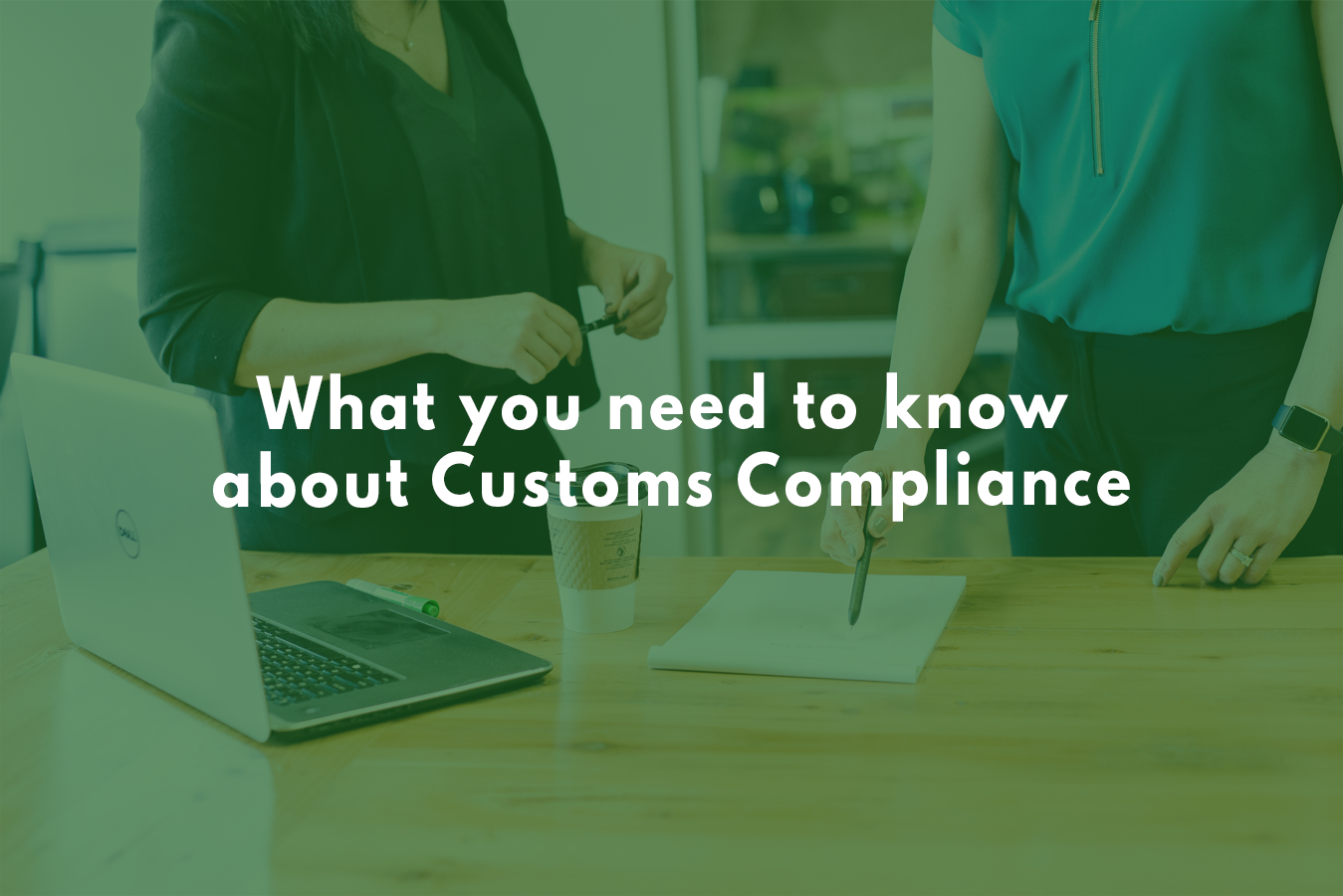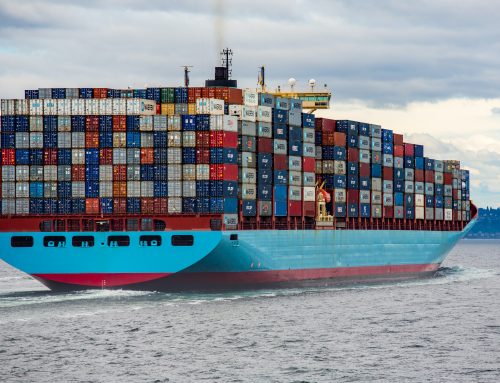Importing goods over the border can be a complex and intimidating task. There are many rules and regulations placed on the import of goods by the US. Customs and Border Protection (CBP), and the importer is expected to have a thorough understanding of them. The least costly way to get through a U.S Customs compliance audit by the CBP is to arrive with all your documents in order.
There’s a lot to familiarize yourself with, so we’ve outlined some of the major standards and practices you should be following.
What is customs compliance?
Customs compliance is the practice of simply respecting and following all regulations on imports.
The CBP has strict outlines for virtually any kind of item. It is the importers responsibility to thoroughly consult this document and other materials provided by the CBP, find the items they wish to import, and follow the required steps in preparing shipments.
A very important step in becoming knowledgeable in Customs Compliance practices is taking a trade compliance training course. The U.S Government offers seminars, as do third parties. These are a great place to start getting familiar as importers are expected to have a strong basis on which they believe in the accuracy of the information they present.
Below are some basic guidelines all importers must follow, but be sure to research for additional requirements on your specific type of imports.
Importers are responsible for:
- Securing, submitting, validating and documenting accurate data.
- Storing and retaining data as required by law.
- Auditing and reviewing data regularly, such as value, country of origin, composition, and claims for reduced duty or duty free imports.
- Creating descriptions of your merchandise that adhere to the most up-to-date regulations.
- Declaring assists, commissions, and royalties.
- Mark all articles with the country of origin and manufacturer.
Failure to adhere to proper U.S Customs Compliance standards can result in:
- Fines and penalties
- Liquidated damages
- Various import compliance audits
- Increased costs of international business
- Disruptions and delays
- Loss of import privileges
Reasonable care in Customs Compliance
The CBP describes Reasonable Care as the responsibility importers carry in ensuring all documents they submit are factual. This sounds a lot like customs compliance, but it actually holds a few key differences. Under Reasonable Care, there is a margin of error allowed to importers for misidentified or improperly filed documents. If there is an error but the importer has demonstrated Reasonable Care, penalties may be reduced or waived.
It’s in an importers best interests to demonstrate Reasonable Care at all times, as audits can come at random and can happen frequently if you are importing often. It is the importers burden to act responsibly in their quest for accurate and complete information to support all declarations to customs.
To demonstrate Reasonable Care, importers must:
- Engage a customs expert to assist in meeting requirements.
- Address any violations you recognize head on. Ignorance of the law is not a valid excuse.
- Ensure all your employees have internet access to Customs Regulations, the CBP, HTSUS and other resource and have undergone trade compliance training.
- Implement a record keeping program to see that all documents are kept for seven years.
- Enact procedures to continually ensure your materials are properly classified and valued.
- Enact a self-audit procedure to identify any failures of your verification and documentation processes.
- Ensure all communications, oral and written, from CBP and other government organizations are received by the designated import employees.
- Enact a procedure to verify that all imports comply with the country of origin marking requirements, as well as import labeling requirements of the destination country.
If you can’t demonstrate Reasonable Care, you’ll face the full effect of the above penalties. If a violation is found with your import but you have demonstrated Reasonable Care, you may be protected from penalties.
In order to verify whether you are really using Reasonable Care or not, you should be performing internal audits. This is essentially a mock audit that will prepare you for anything a real audit might throw at you. By regularly practicing internal customs compliance audits, you can see where your shortcomings are make yourself aware of any recent import compliance policies.
Catching your own company in an error will be far less costly than waiting for the US Customs clearance process to find one during a real audit. If you’ve never done an internal audit before, we have a helpful checklist to get you started.
Note: Under no circumstances should the importer attempt to use Reasonable Care to their advantage. U.S courts and Customs have made it very clear that they expect thorough and extensive investigation to verify all information. In the event of a failed audit, Reasonable Care will be considered with extreme scrutiny.
The penalties given by the CBP are based on the level of culpability they determine you to fall in: negligence, gross negligence, and fraud. Knowingly falsifying data, whether to manipulate Reasonable Care or for other reasons, is considered fraud and can result in extreme penalties.
Simplifying Customs Compliance
One of the most common ways of making this process a little less burdensome is by hiring a customs broker. In fact, choosing not to involve a customs professional of some kind can look very bad in an audit and is likely to be considered a failure of Reasonable Care.
A reliable customs broker trained in all customs regulations can make sure your imports are always up to standard. Should an error occur, you will have taken all the measures you possibly could.
It’s important to note that any violation of regulations falls on the importer, not the broker. While you are hiring a broker to take care of verifications, you yourself must verify your broker. If your broker isn’t asking you as much as they possibly can about the goods you are importing or frequently keeping you updated on any changes in CBP standards, how can they properly classify the items for you?
You must also understand what the role of your custom broker is and have a thorough knowledge on all the things they should be looking for. Always take it upon yourself to be up to date and knowledgeable on all customs compliance regulations.
Still, a good customs broker will help you tremendously by performing an internal customs compliance audit. The broker can focus solely on the tasks related to customs compliance, and having an independent assessment performed by an objective party will give you an invaluable perspective on how you would fare in an actual CBP audit.
Check out more information on how a customs broker can help you adhere to Customs Compliance and ensure you’re practicing Reasonable Care at all times.
At Clearit, we’re proud to offer compliance audits, document preparation, valuation and many other valuable services to help you with customs compliance. Our team of brokers are always here to answer any questions so you, so get in touch with us today for all of your import/export needs.



